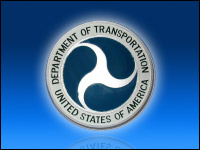
U.S. airlines may not keep passengers waiting in an airplane on a tarmac — whether for take-off clearance or stalled because of bad weather or just about any other reason — for more than three hours, according to new rules issued by the Department of Transporation. After two hours, airlines are required to give passengers food and water.
The only exceptions are for safety or security issues — or if air traffic control advises the pilot in command that returning to the terminal would disrupt airport operations. The rules apply to domestic flights only; international flights departing from or arriving in the U.S. must specify their own time limits for deplaning passengers.
Fines for violations will be US$27,500 per passenger. These rules are set to go into effect within 120 days.
Federal government offices in Washington, D.C., were closed on Monday. A call from CRM Buyer was not returned by press time.
$175,000 Fine
The new rule followed an incident earlier this year in which passengers at the Rochester, Minn., airport were stranded in an aircraft for six hours. In its first ever such fine, the Transportation Department found Continental Airlines, ExpressJet Airlines and Mesaba Airlines guilty of deceptive marketing practices and imposed a civil fine totaling $175,000. Under the new rule, the fine would have been more than $1 million.
The Minnesota episode was just one of many such strandings. An estimated 1,500 planes in 2007 and 2008, carrying about 114,000 passengers, were delayed on tarmacs for more than three hours.
Occasionally, such delays become high profile, prompting calls for legislative action.
“For 10 years, passenger advocates and some legislators have been trying to get a passenger bill of rights passed that would include these provisions,” Joel Smiler, a volunteer at the Coalition for Flyers Rights, told CRM Buyer. “The airline industry lobby is so strong it has always managed to keep it from becoming law.”
The new rule has financial penalties with teeth, he noted. “The airlines are going to have a hard time trying to get around this. This is a fantastic rule as far as I am concerned.”
After being stuck on a parked American Airlines jet for more than nine hours, Kate Hanni filed a class action lawsuit against American Airlines for “false imprisonment” and quit her day job as a realtor to formFlyersRights.org.
JetBlue’s Example
Since then, a number of airlines have included the promise of some form of assistance in their customer service policy — albeit not so far-reaching as the new Transportation rules and not backed by the weight of federal enforcement.
JetBlue, for example, promises that passengers trapped in a grounded plane for hours will be provided with food and water, clean bathrooms, medical attention if necessary, and even entertainment in the form of 36 channels of DirectTV.
The airline’s reputation took a huge hit when in February 2007 it kept passengers in airplanes for as long as 11 hours due to weather conditions.
The rule also
- prohibits airlines from scheduling chronically delayed flights;
- requires airlines to designate an airline employee to monitor the effects of flight delays and cancellations, respond in a timely fashion to consumer complaints, and provide information to consumers on where to file complaints;
- requires airlines to display on their Web site flight delay information for each domestic flight they operate;
- requires airlines to adopt customer service plans and audit their own compliance with their plans; and
- prohibits airlines from retroactively applying material changes to their contracts of carriage that could have a negative impact on consumers who already have purchased tickets.
The Transportation Department also plans to develop rules that would require airlines to submit to DoT for review and approval contingency plans for lengthy tarmac delays; report additional tarmac delay data; disclose baggage fees; and strengthen requirements that airline ads disclose the full fare consumers must pay for tickets.





















































